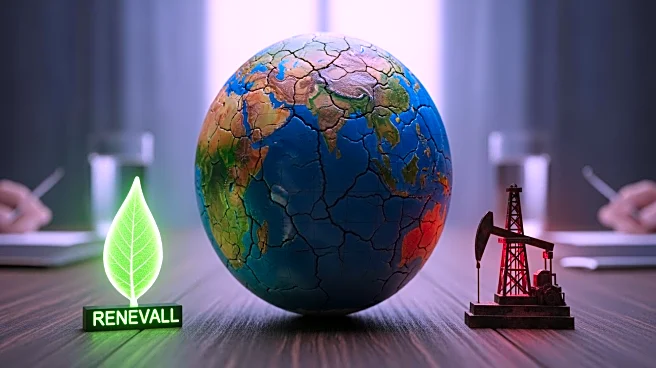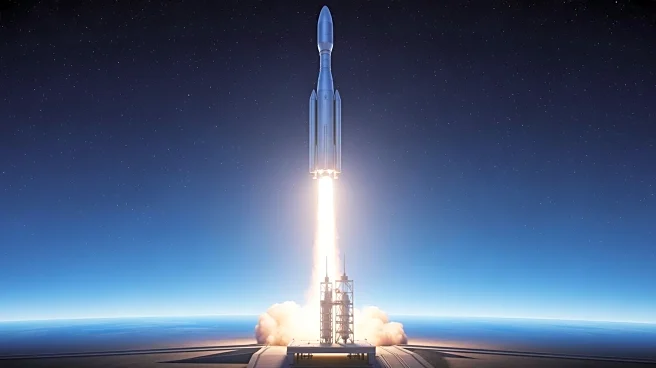What's Happening?
The U.N. climate talks are facing disruptions due to disagreements over the phaseout of fossil fuels. Several nations, including Panama, are insisting that the talks explicitly address the role of fossil fuels in global
warming. The conference president, André Corrêa do Lago of Brazil, proposed texts that lack a clear roadmap for transitioning away from fossil fuels, leading to objections from 36 countries. The European Union and other nations have rejected the current proposals, demanding stronger commitments to reduce emissions and transition from fossil fuels. The talks, held at COP30 in Brazil, are likely to extend beyond the scheduled deadline due to these disputes.
Why It's Important?
The outcome of these negotiations is crucial for global climate policy, as it could influence international efforts to combat climate change. The disagreement highlights the challenges in reaching consensus on fossil fuel phaseout, a key factor in reducing greenhouse gas emissions. The resistance from oil-producing nations underscores the geopolitical complexities involved. A successful agreement could accelerate the transition to renewable energy, while failure to reach consensus may hinder progress in achieving climate goals set by the Paris Agreement.
What's Next?
Negotiations are expected to continue, with smaller groups of countries meeting to find common ground. The Brazilian presidency is working to draft new proposals that address the concerns raised. The extended talks may lead to revised texts that better align with the demands for a clear fossil fuel phaseout roadmap. The involvement of influential figures like former U.S. Vice President Al Gore and Brazil's President Luiz Inácio Lula da Silva could impact the direction of the discussions.








